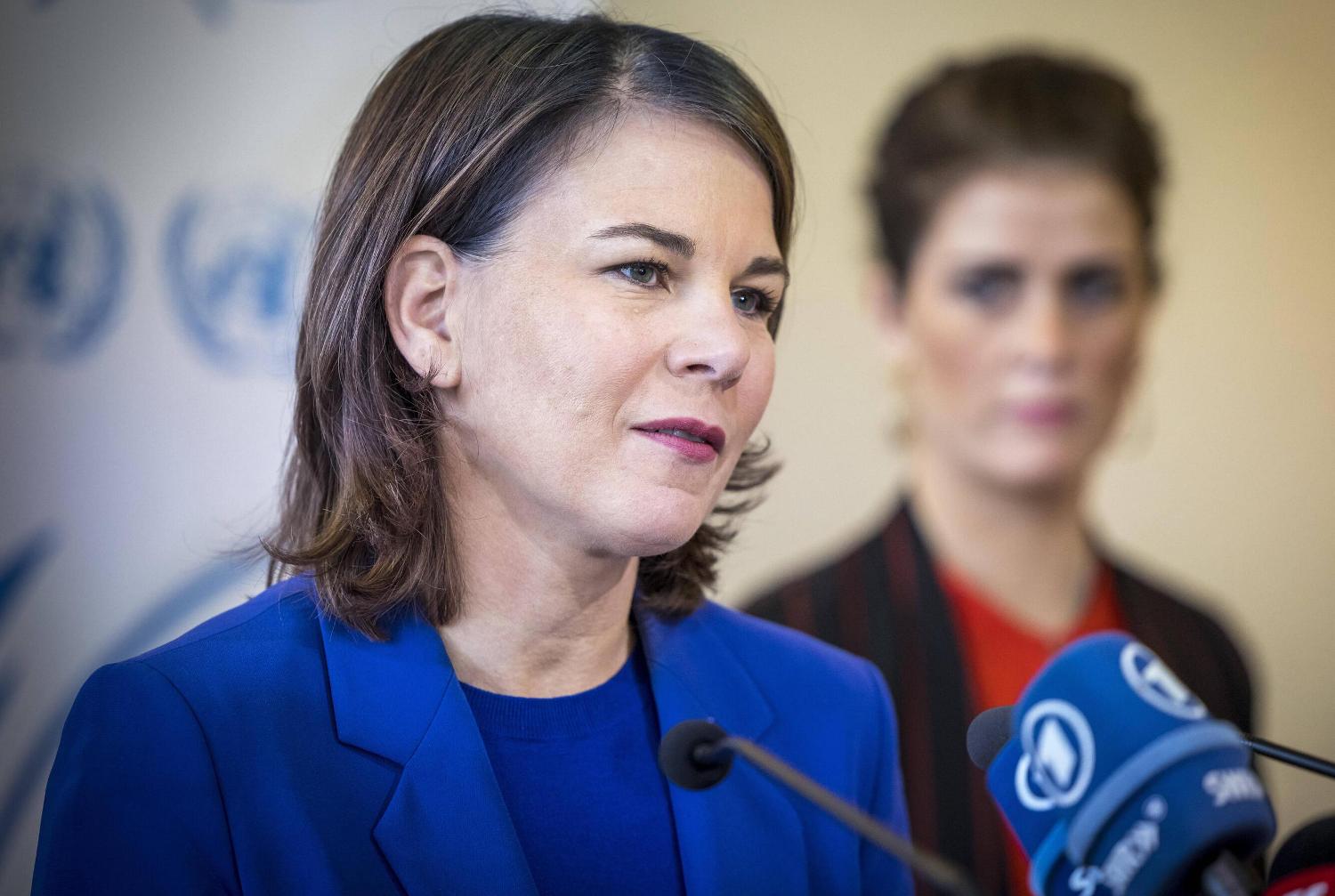AhlulBayt News Agency: Germany says there is no legal basis for blacklisting Iran's Islamic Revolution Guards Corps (IRGC) as a "terrorist organization," echoing earlier remarks made last month by the European Union's foreign policy chief.
Speaking on Monday following a meeting of EU foreign ministers in Brussels, German Foreign Minister Annalena Baerbock said German experts have found no legal grounds to justify such a move against the IRGC.
"As of now, we don't have legal grounds in the EU to list the [Islamic] Revolutionary Guards [Corps] as [a] terrorist organization," she said.
The new development came as the 27-nation bloc has been slapping sanctions on Iran over what it calls the country's approach towards foreign-backed riots that erupted in some Iranian cities in September.
The riots broke out after the death in police custody of Mahsa Amini, a 22-year-old Iranian woman. She fainted at a police station in Tehran and was pronounced dead three days later at the hospital. An official report by Iran’s Legal Medicine Organization concluded that Amini’s death had been caused by illness rather than alleged blows to the head or other vital body organs.
Following her death, rioters went on a rampage, brutally attacking security officers and causing massive damage to public property. Dozens of people and security personnel were killed throughout the riots. Iran’s intelligence bodies have found footprints of American and other Western spy agencies in the violent riots.
Last month, the European Parliament adopted an amendment calling on the EU and its member states to include the IRGC on their terror list. It also passed another resolution, calling for more sanctions against Iranian individuals and entities and putting the IRGC on the EU's so-called terror list over alleged human rights violations during the recent riots.
Major General Hossein Salami, the chief commander of the IRGC, blasted the European Parliament’s resolution, warning that the Europeans would suffer the consequences of their move.
On January 23, however, the European Union's foreign policy chief, Josep Borrell, said the bloc could not list the IRGC as a "terrorist" entity without an EU court decision.
Speaking before a meeting of EU foreign ministers in Brussels, Borrell said a court ruling with a “concrete legal condemnation” had to first be handed down before the bloc itself could apply any such designation.
"It is something that cannot be decided without a court; a court decision first. You cannot say I consider you a terrorist because I don't like you," Borrell told reporters, stressing that the court of an EU member state had to issue a concrete legal condemnation before the bloc could act.
/129
Speaking on Monday following a meeting of EU foreign ministers in Brussels, German Foreign Minister Annalena Baerbock said German experts have found no legal grounds to justify such a move against the IRGC.
"As of now, we don't have legal grounds in the EU to list the [Islamic] Revolutionary Guards [Corps] as [a] terrorist organization," she said.
The new development came as the 27-nation bloc has been slapping sanctions on Iran over what it calls the country's approach towards foreign-backed riots that erupted in some Iranian cities in September.
The riots broke out after the death in police custody of Mahsa Amini, a 22-year-old Iranian woman. She fainted at a police station in Tehran and was pronounced dead three days later at the hospital. An official report by Iran’s Legal Medicine Organization concluded that Amini’s death had been caused by illness rather than alleged blows to the head or other vital body organs.
Following her death, rioters went on a rampage, brutally attacking security officers and causing massive damage to public property. Dozens of people and security personnel were killed throughout the riots. Iran’s intelligence bodies have found footprints of American and other Western spy agencies in the violent riots.
Last month, the European Parliament adopted an amendment calling on the EU and its member states to include the IRGC on their terror list. It also passed another resolution, calling for more sanctions against Iranian individuals and entities and putting the IRGC on the EU's so-called terror list over alleged human rights violations during the recent riots.
Major General Hossein Salami, the chief commander of the IRGC, blasted the European Parliament’s resolution, warning that the Europeans would suffer the consequences of their move.
On January 23, however, the European Union's foreign policy chief, Josep Borrell, said the bloc could not list the IRGC as a "terrorist" entity without an EU court decision.
Speaking before a meeting of EU foreign ministers in Brussels, Borrell said a court ruling with a “concrete legal condemnation” had to first be handed down before the bloc itself could apply any such designation.
"It is something that cannot be decided without a court; a court decision first. You cannot say I consider you a terrorist because I don't like you," Borrell told reporters, stressing that the court of an EU member state had to issue a concrete legal condemnation before the bloc could act.
/129

